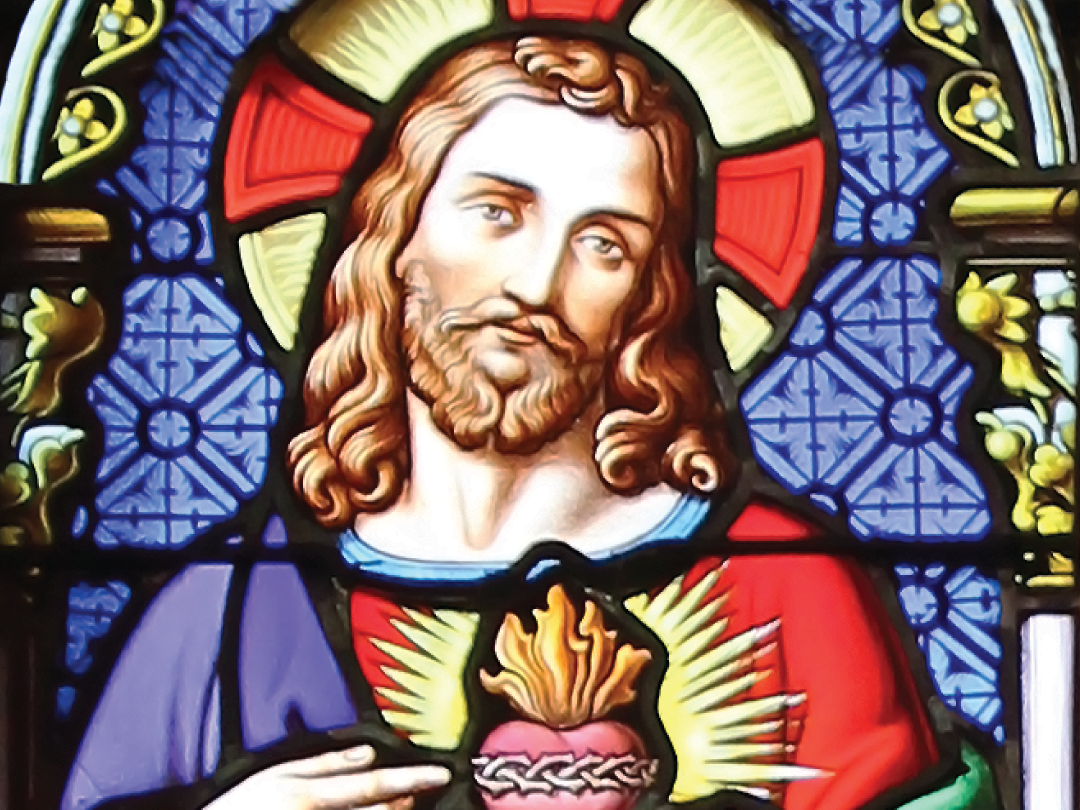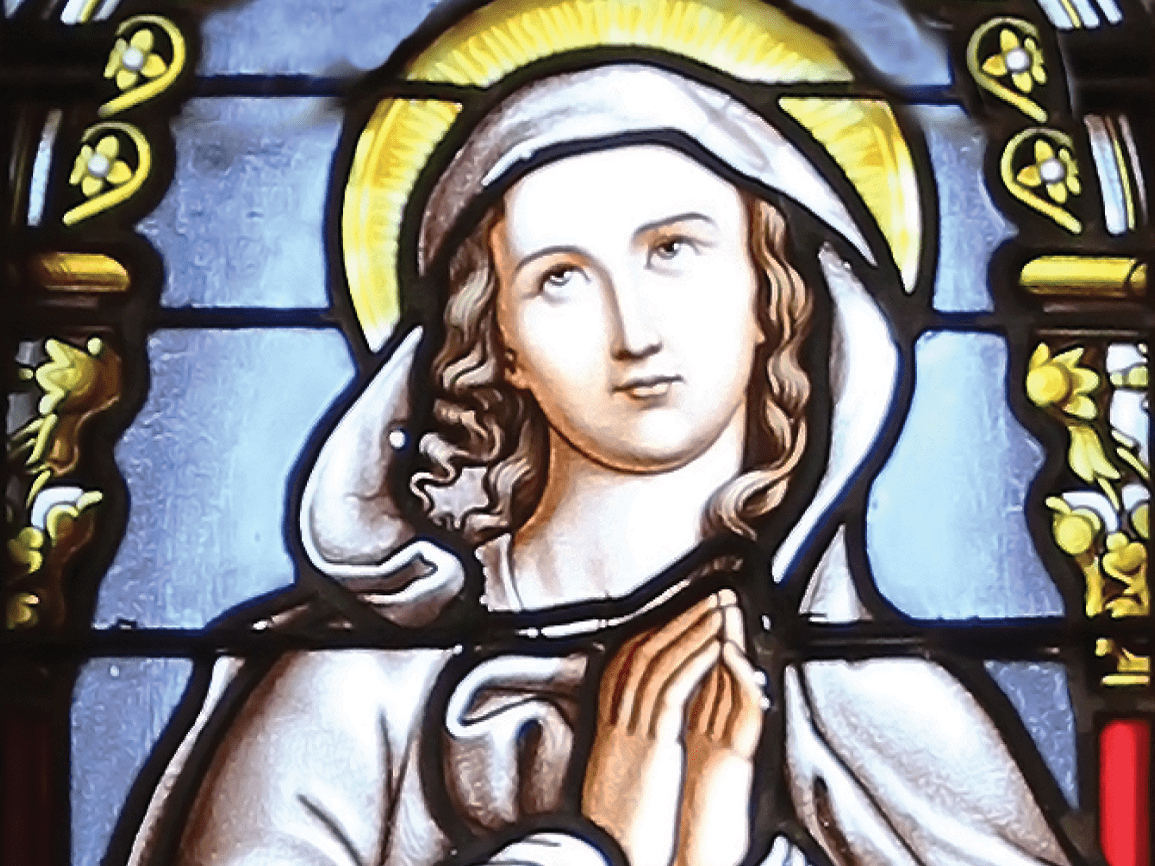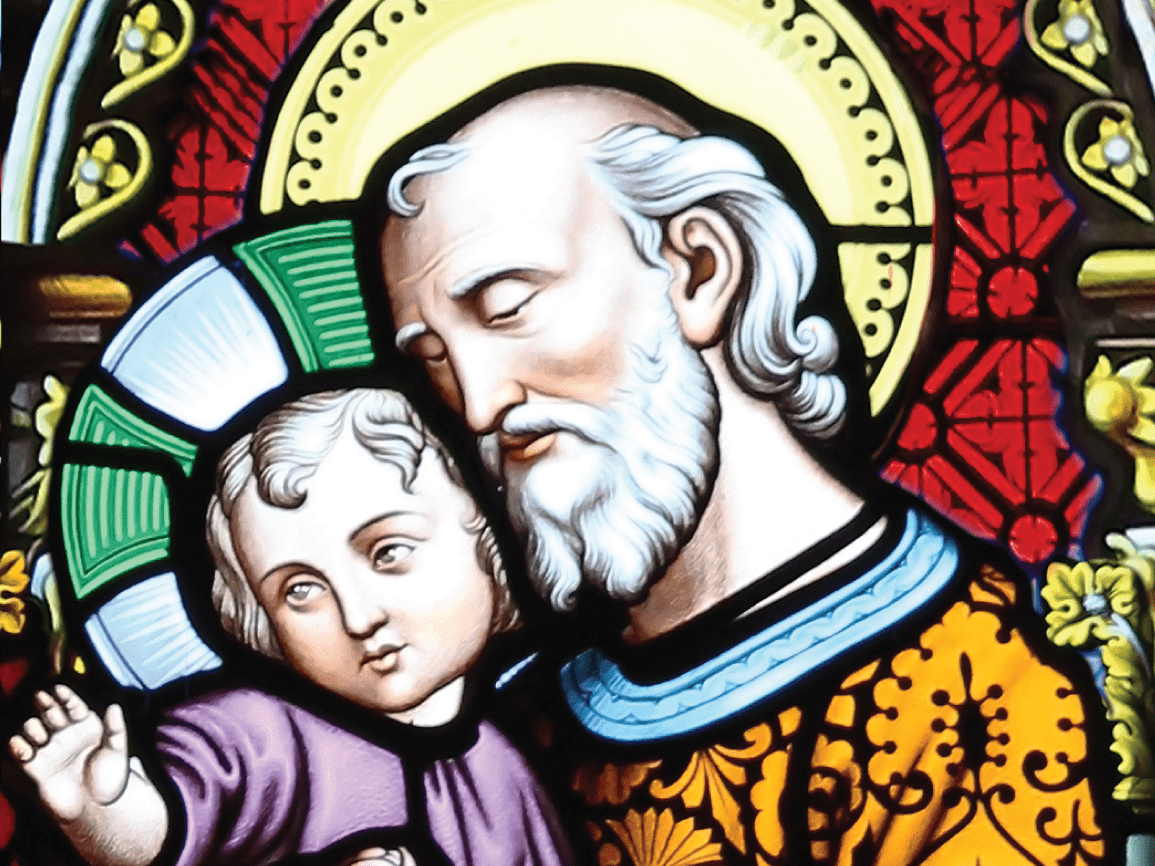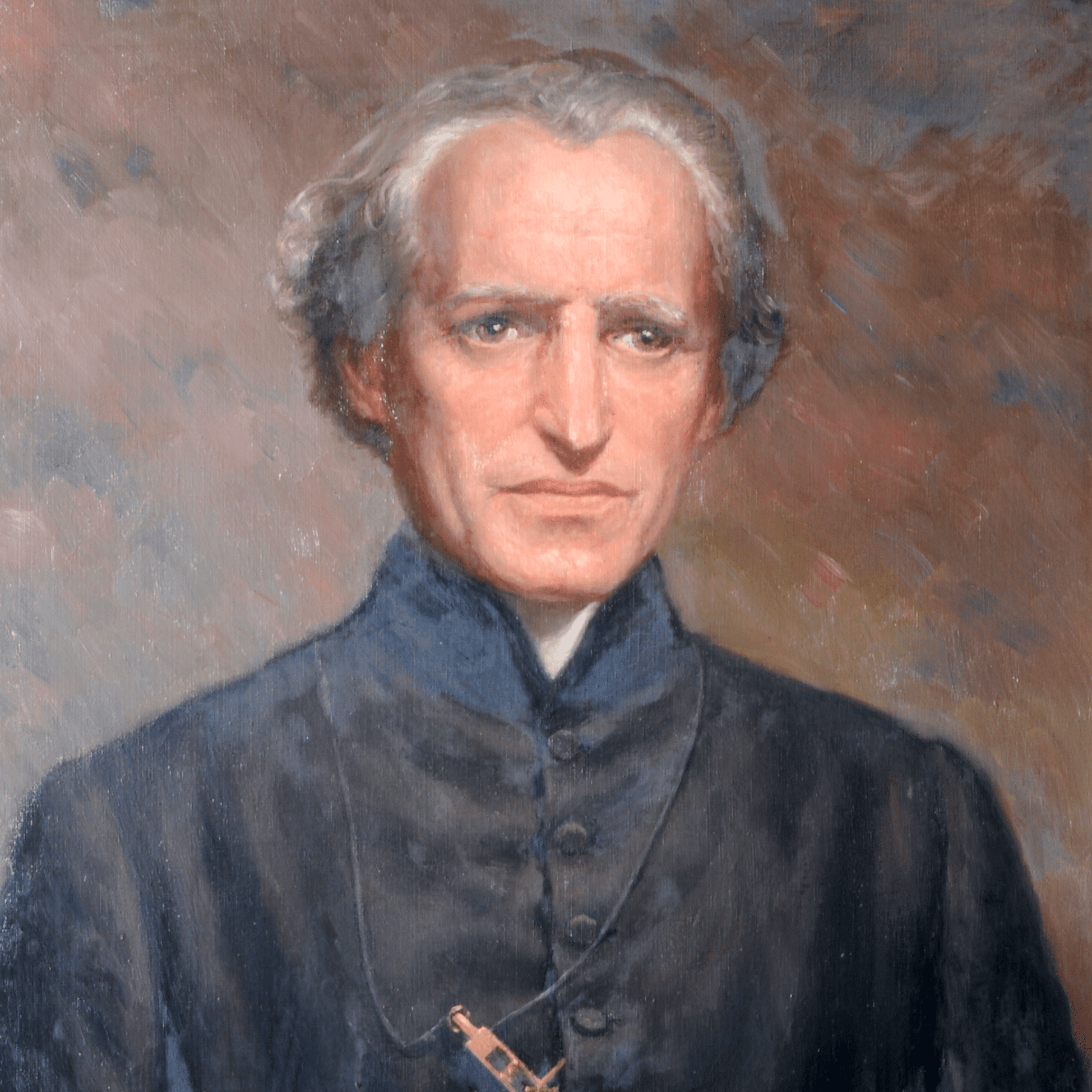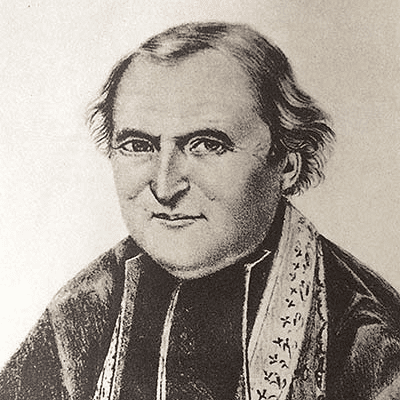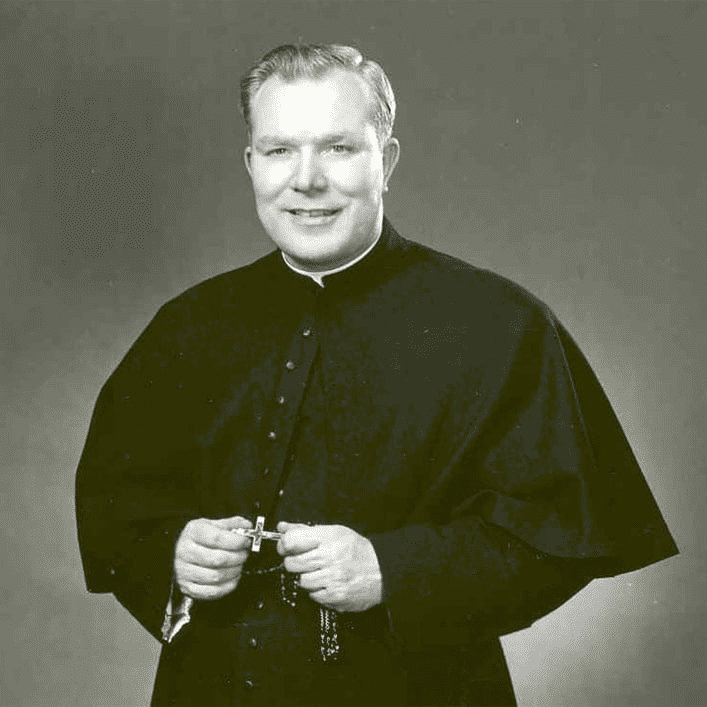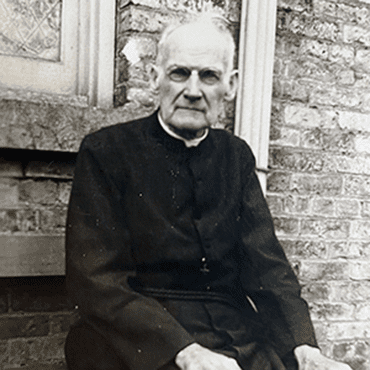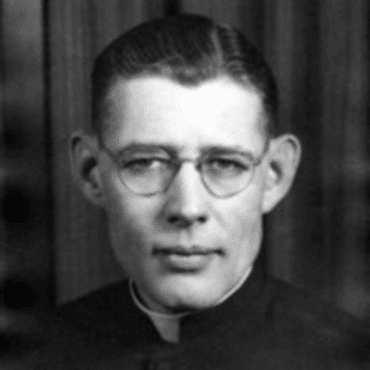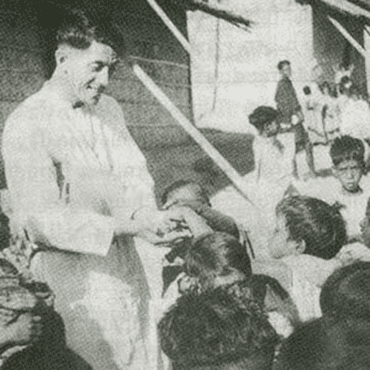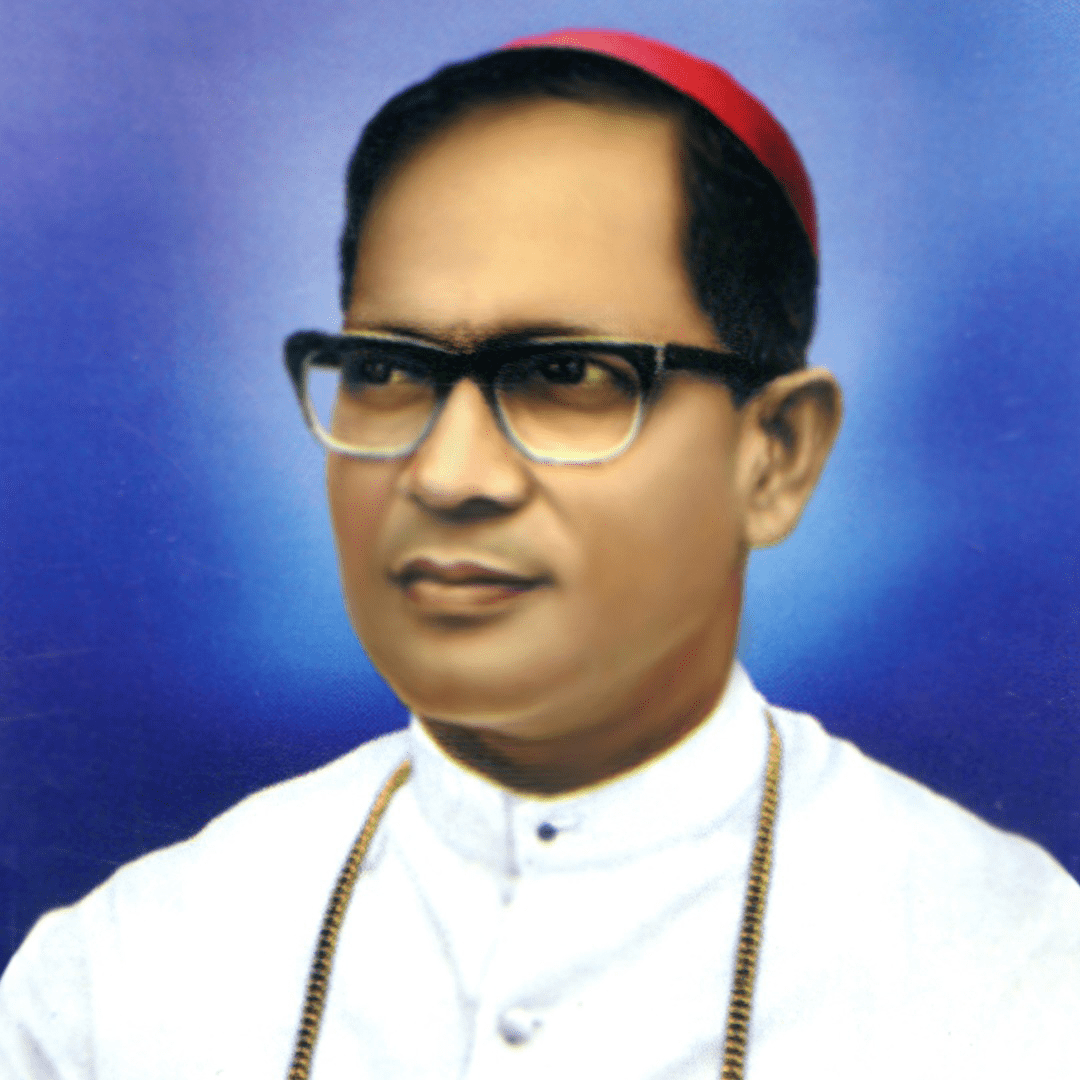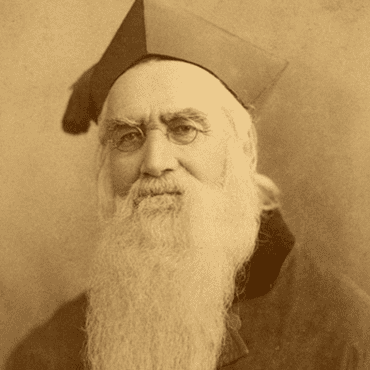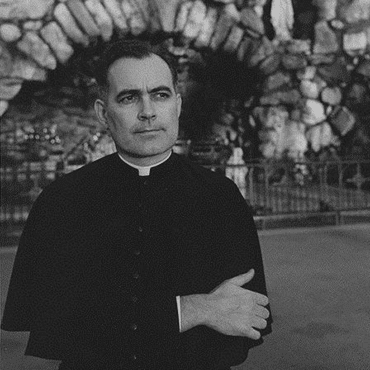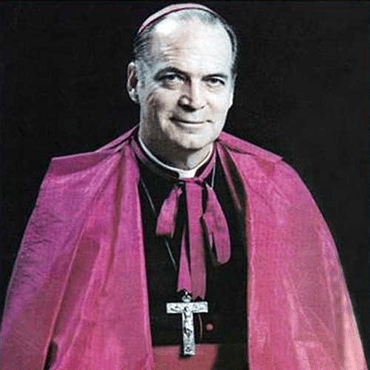History & Spirituality
A Family Serving Families
In 1837, Fr. Basil Anthony Moreau founded the Congregation of Holy Cross in a little town near Le Mans, France.
During the French Revolution, the social systems of France had been decimated, and millions were left without adequate health care, education, or access to the sacraments. Fr. Moreau had a charism for preaching and had formed a group of auxiliary priests to educate and serve the local communities. After he inherited a group of lay brothers from Fr. Jacques Dujarié, he banded the groups together to form the Congrégation de Sainte-Croix. The community was named after Sainte-Croix, the small French town in which it was founded. He consecrated the community as a whole to Our Lady of Sorrows, with the priests devoted especially to the Sacred Heart of Jesus, and the brothers to Saint Joseph. While Moreau’s vision for the Congregation originally included a group of sisters, as well, they were established as a separate community during the process of Vatican approval.
The Congregation of Holy Cross began to teach, preach, and serve around the nation and quickly expanded to other areas of the globe. Moreau’s unfailing faith in Divine Providence, devotion to the Holy Family, and deep love of the Eucharist guided him through the community’s uncertain early years, allowing it to thrive in the face of continuing opposition.
Faithful to Moreau’s original vision, the Congregation of Holy Cross continues to operate under the model of the Holy Family to this day. We are a family serving families, and we try to treat all those we serve as our own family. Following the pattern begun in the little town of Sainte-Croix, we also attune ourselves to the particular needs of each place in which we find ourselves.
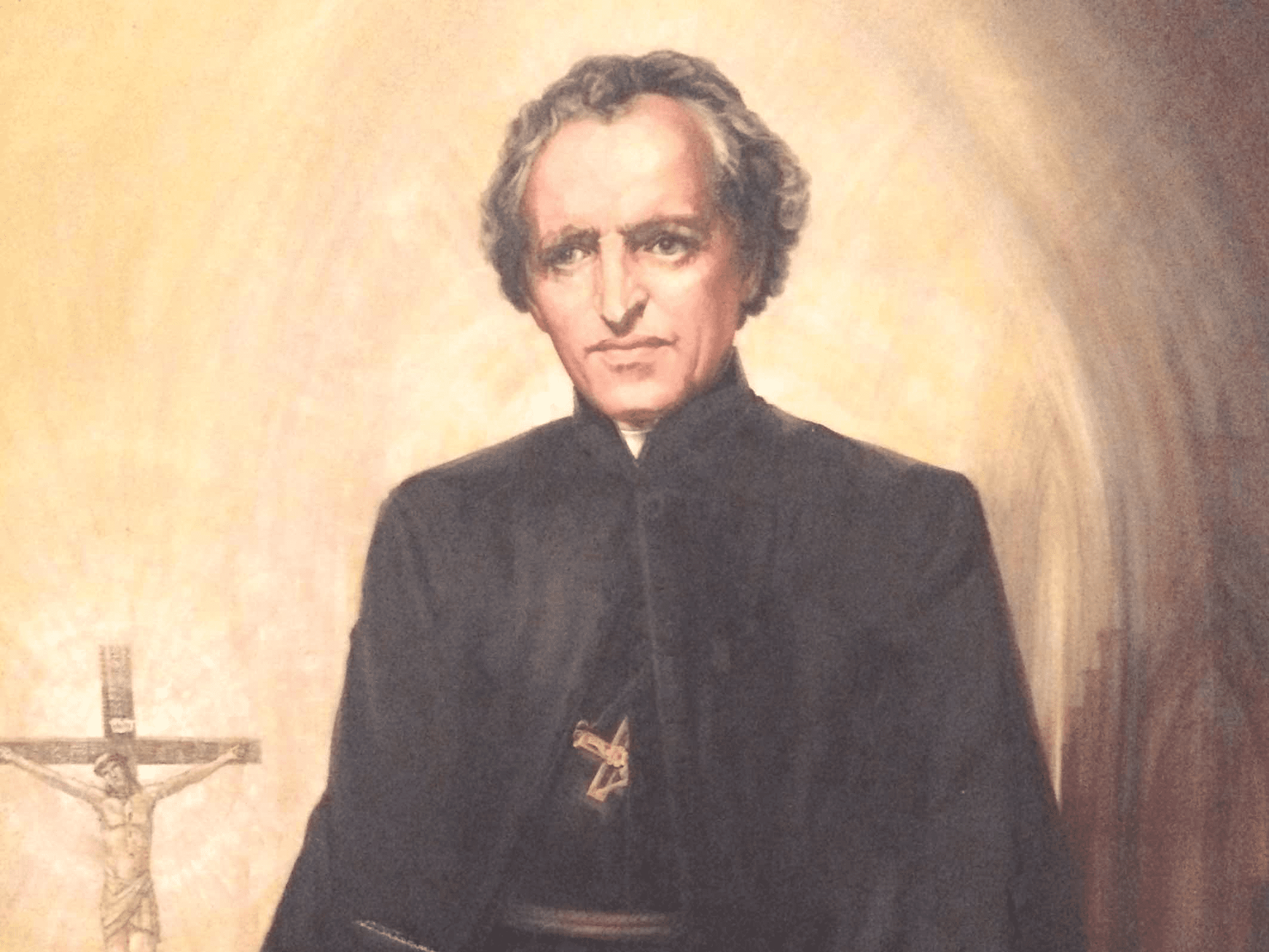
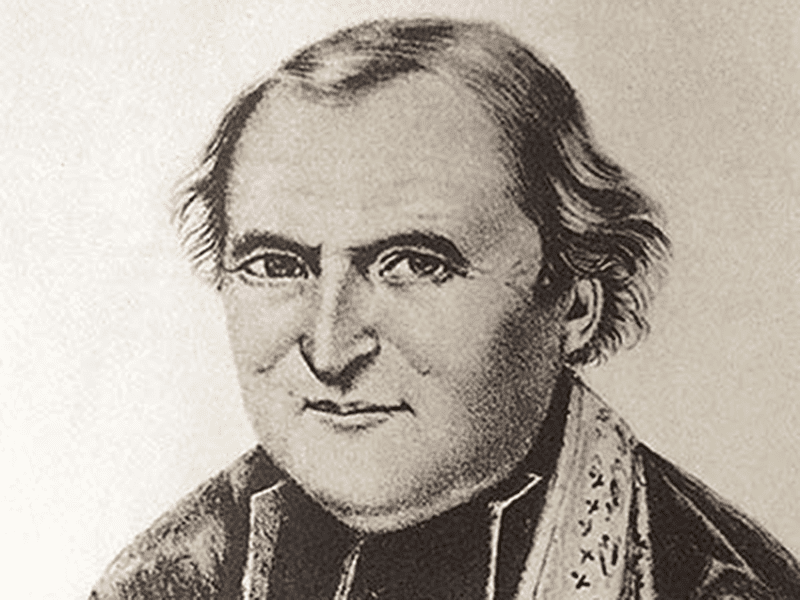
“But we do not grieve as men without hope, for Christ the Lord has risen to die no more. He has taken us into the mystery and the grace of this life that springs up from death. If we, like Him encounter and accept suffering in our discipleship, we will move without awkwardness among others who suffer. We must be men with hope to bring.”
Constitutions of the Congregation of Holy Cross, 8:118
Holy Cross Patrons
From the earliest days, Blessed Basil Moreau envisioned his new Congregation being modeled after the Holy Family. Not surprisingly then, he entrusted each of the three branches of Holy Cross to an individual patron within the Holy Family. The priests of Holy Cross are consecrated to the Sacred Heart of Jesus. The brothers of Holy Cross, drawing upon their beginnings with Fr. Jaques Dujarie as the Brothers of St. Joseph, are consecrated to St. Joseph. The sisters of Holy Cross are consecrated to Mary under the title of Our Lady of Sorrows.
The entire Congregation is also placed under the patronage of Our Lady of Sorrows.
Sacred Heart of Jesus
As Holy Cross Priests, we ground our model of priestly charity in the Sacred Heart of Jesus – that heart pierced by the soldier’s lance in the final proof that Jesus offered all, every last bit of His life, for us. In imitation of Him, we also seek to offer all in ministering the Sacraments and preaching the Good News.
Our Lady of Sorrows
Mary, Our Lady of Sorrows, is both the patron of Holy Cross Sisters and the special patron of the whole family of Holy Cross. In selecting Mary under this title as our principal patron, Blessed Basil Moreau gave us a patron who, better than anyone else, could instruct us in our spirituality and mission to proclaim the Cross of Christ as our only hope.
Saint Joseph
Saint Joseph embodies the virtues for which all Christians, but especially we religious, strive, including integrity, fortitude, fidelity, and sanctity. We seek to live our vocations as Holy Cross brothers with the same loyalty, faithfulness, and generosity that Joseph showed in his vocations as the husband of Mary and the foster-father of Jesus.
“The footsteps of those men who called us to walk in their company left deep prints, as of men carrying heavy burdens. But they did not trudge; they strode. For they had the hope. It is the Lord Jesus calling us. ‘Come. Follow me.’”
Constitutions of the Congregation of Holy Cross, 8:122-123
Holy Cross Heroes
Generations of men have made and lived by their vows within the Congregation of Holy Cross. For the better part of two centuries, Holy Cross Priests and Brothers have made countless sacrifices and shown heroic virtue in service of the Gospel. Stories of these religious have spread throughout the lands where we have served.
Below, we share the biographies of a few of our men who have exemplified what it means to be a Holy Cross Religious and whose holiness has been recognized by the Church, including our holy founder, our first canonized saint, the father of Brothers of St. Joseph, the Rosary Priest, an intrepid missionary and the founder of the world’s premier Catholic research university. We also profile some of the unsung Holy Cross Priests and Brothers who have brought hope through their lives and ministry.
They are all part of the “great cloud of witnesses” spoken of in the Letter to the Hebrews that inspires us “to rid ourselves of every burden and sin that clings to us and persevere in running the race that lies before us while keeping our eyes fixed on Jesus, the leader and perfecter of faith” (12:1-2).
Blessed Basil Moreau
Blessed Basil Moreau, founder of the Congregation of Holy Cross, was born in France in 1799. A sought-after preacher and lively professor, Fr. Moreau formed the first association of Holy Cross in 1837 to serve the educational needs of post-revolution France. Soon after, he sent members of his fledgling congregation to Africa, Asia, and North America to serve the Church as educators in the faith.
Saint André Bessette
Alfred Bessette entered the Congregation of Holy Cross in 1870 and took the name Brother André. As doorkeeper in one of the congregation’s schools, he fostered devotion to Saint Joseph among the sick and soon became known as the “Miracle Man” of Montreal for the miraculous cures attributed to his intercession. In 1904, he founded the world-renowned Oratory of Saint Joseph.
Father Jacques Dujarié
Ordained during the French Revolution in 1795, Fr. Jacques-François Dujarié courageously worked as an “underground priest”, often celebrating Mass in secret. When the Revolution ended, he helped rebuild the Church in France, including assembling a group of teaching brothers. These Brothers of St. Joseph became the Brothers of Holy Cross when joined with Fr. Moreau’s Auxiliary Priests in 1831.
Venerable Patrick Peyton
Father Patrick Peyton, C.S.C., the “Rosary Priest”, dedicated his life and ministry to spreading devotion to the Blessed Mother, especially through the Family Rosary. He coordinated Rosary events in more than 40 countries, gathering more than 28 million people worldwide in prayer. Father Peyton’s vision that “the family that prays together, stays together,” continues to resonate in the Church today.
Servant of God, Brother Columba O'Neill
Servant of God Columba O’Neill was a cobbler at the University of Notre Dame for 38 years, Br. Columba is known for curing those with illness or ailment, taking no credit for the cures, but claiming they were the result of his “intercession to the Sacred Heart of Jesus through the Immaculate Heart of Mary.” From the writings of his Superior at the time, he was also known for his “humility, love of neighbor, confidence in God, lively faith, devotion to the Sacred Heart, life of prayer, of poverty . . . and all realized that in these was found the secret of his sanctity.”
Servant of God, Bishop Vincent McCauley
Servant of God Vincent McCauley was a missionary priest to Bangladesh, seminary instructor, and a pioneer in the Holy Cross missionary work in Africa. As the founding bishop of the Diocese of Fort Portal, Uganda, he became an influential leader in the development of the Church in East Africa.
Servant of God, Brother Flavian Laplante
Br. Flavian Laplante, C.S.C., was born on July 27, 1907, in St.-Louis-de-Richelieu, Quebec, Canada. He entered the Congregation at the age of 16. Br. Flavian arrived to Chittagong in East Bengal on December 1, 1932. His first assignment was to assist at the Congregation’s new high school in Padrishibpur. With the exception of an assignment to Noakhali from 1957 to 1962, Flavian dedicated the rest of his life to ministering in Diang and among the fishermen of the nearby region. Br. Flavian was declared a Servant of God on February 13, 2009 – the Feast of Our Lady of Lourdes – by Most Rev. Patrick D’Rozario, Bishop of Chittagong Diocese, Bangladesh.
Servant of God, Archbishop Theotonius Ganguly
Br. Flavian Laplante, C.S.C., was born on July 27, 1907, in St.-Louis-de-Richelieu, Quebec, Canada. He entered the Congregation at the age of 16. Br. Flavian arrived to Chittagong in East Bengal on December 1, 1932. His first assignment was to assist at the Congregation’s new high school in Padrishibpur. With the exception of an assignment to Noakhali from 1957 to 1962, Flavian dedicated the rest of his life to ministering in Diang and among the fishermen of the nearby region. Br. Flavian was declared a Servant of God on February 13, 2009 – the Feast of Our Lady of Lourdes – by Most Rev. Patrick D’Rozario, Bishop of Chittagong Diocese, Bangladesh.
Father Edward Sorin, C.S.C.
Father Edward Sorin was one of the first four priests, who along with Blessed Basil Moreau, professed perpetual vows in Holy Cross on August 15, 1840. Sent by Blessed Moreau to the United States the following year with six Holy Cross brothers, Fr. Sorin went on not only to found the University of Notre Dame, but also to oversee the rapid expansion of the mission of Holy Cross in the United States.
Father Theodore Hesburgh, C.S.C.
Father Theodore Hesburgh served as President of the University of Notre Dame from 1952-1987. Throughout his lifetime, he maintained that all he had ever wanted to be was a Catholic priest, and that all he did was in fulfillment of his vocation to the priesthood. He engaged in many outreach efforts to the poor and fought for civil rights — in one instance, right by Martin Luther King Jr.’s side.
Archbishop Marcos G. McGrath, C.S.C.
A leading figure in the Church in Latin America and a pastor at the heart of the Second Vatican Council, Archbishop McGrath was born in Panama and received his secondary education in the United States, graduating from the University of Notre Dame in 1945, and later ordained into the priesthood on June 11, 1949.

